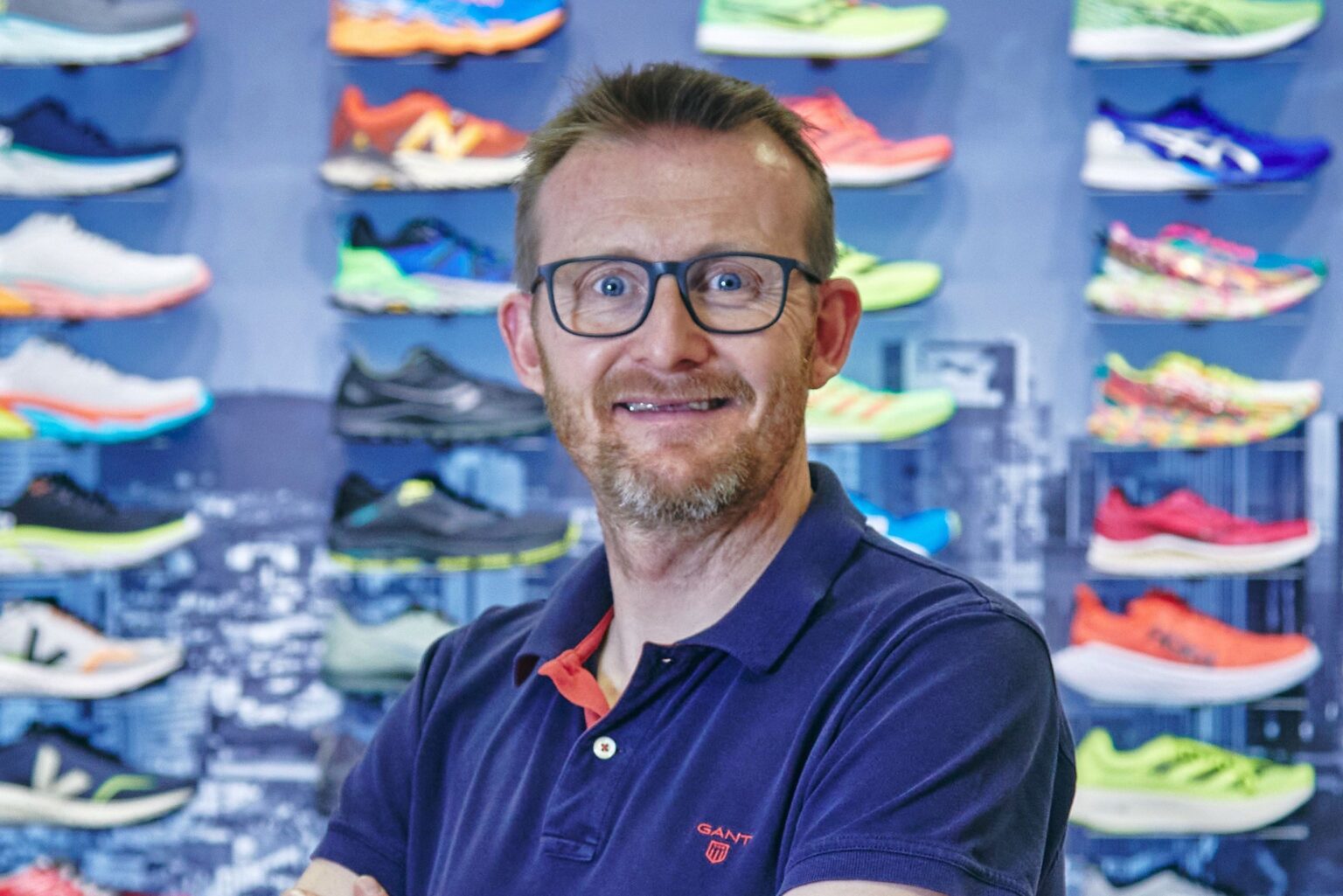Jost Wiebelhaus, owner and founder of the Frankfurt running shop in the #PEX21 speaker interview
The Payment Exchange 2021 is in the starting blocks. This year there are two events. The first part of #PEX21 will take place on 25 March 2021. We’re streaming live for you on the web.
We’re also unpacking the digital mace for the Payment Exchange, and twice. This spring and summer , we’re opening the virtual doors of #PEX21, our Mini Payment Show. Over the course of two half-days, you can expect a small, but nice, colorful mix of panels and keynotes. We’re streaming live online. You can join in the discussion, ask questions online, participate in surveys or exchange ideas with others in Slack chats. If it is possible, there will also be a small offline part for the second event in summer. As always, the Exchange is in the foreground for us. The first part of the #PEX21 starts already next week.
On the panel: One Year Pandemic: The Corona Effect in Retail and Payment, we want to talk about the impact of the Corona crisis on retail and payment. How has the retail sector experienced the crisis? Who’s a winner, who’s a loser? Has the pandemic changed the consumption and payment behaviour of customers? And above all, what remains after the crisis? For this we have invited great guests. Among others, Jost Wiebelhaus, founder and owner of the Frankfurt running shop, will be there. The trained banker and graduate economist has turned his hobby into a profession and 20 years ago opened a pure running specialty store in Frankfurt’s city center.

In this interview, he tells us how he experienced the Corona crisis.
Jost, how did you get involved with payment in your job? Explain to us briefly your points of contact with the topic of payment.
As a trained banker, I naturally always have a connection to payments (laughs). But all kidding aside. In our Frankfurt running shop, the stationary store, cashless payment transactions dominate. During the Corona crisis and lockdowns, we adjusted our shipping and delivery service. At the contactless packing stations, our customers primarily pay with PayPal, as this is the fastest way.
Your panel is about the Corona crisis, how did you experience the crisis in your company?
At the beginning of the crisis, we were a purely stationary business without an online shop. We faced a major challenge in continuing to serve our customers. We faced it with lightning speed. Exactly one year ago, we set up a shipping and delivery service with the team. The best idea, in my opinion, was to digitize our consulting services. We have succeeded very well with the “laufstilanalyse@home“. In addition, we have increasingly sought contact with our customers. The easiest and fastest way to do this was through social media channels. The videos presented there were very well received by our customers.
How did your business change during the crisis, in terms of sales, turnover, product selection, etc.?
Our business has become more digital. As far as the product range is concerned, there were no changes. Running is a “Corona-winning sport.” With the ban on team sports, many people have taken up running or athletes have increased their workouts. Thus, we experienced a huge surge in demand for running shoes after the initial lockdown. Very important for us was the introduction of an online appointment calendar, which we copied from the Apple stores. This was very well received by the customers. We have been offering online appointment bookings all last year. Now, after the second lockdown, it was easy for us to implement Click&Meet. We knew how to do it and only had to activate the online calendar. And we have expanded our business hours. To top it off, we took advantage of the second lockdown and completely remodeled our store in three weeks. A new running analysis system with dynamic pressure measuring plate and high-speed camera now enhances the shopping experience and the quality of advice.
Keyword “creativity in the crisis”, has the pandemic given you new projects or initiatives that would not have come about without the crisis?

The crisis is definitely an accelerator in digitalization and also in pushing new processes. Otherwise we would not have implemented the “laufstilanalyse@home”, the online appointment calendar, shipping and delivery service and also the brilliant idea with the Frankfurt running shop packing station.
Has the payment behaviour of your customers changed due to the pandemic?
PayPal is the big winner in shipping and delivery services, but so is the QR code in Click&Collect and Click&Meet. Fortunately, the fees are lower here. But traditional referrals have also increased. Here in particular by the possibility of the “Sofortüberweisung”, because the money is immediately on the account and the commodity can be dispatched via bicycle or DPD.
What remains after the crisis? Do you think it will be the same after the crisis?
We will continue to offer our additional services such as the shipping and delivery service and also the “laufstilanalyse@home”. Additionally, we want to maintain online appointment scheduling. This is very well received by customers. This also increases the conversion rate, as an appointment is more binding. I believe that we will continue to be very successful as a specialized retailer with good advice and services, even on the stationary side. Customers want the personal conversation, the detailed advice and extra services like our running seminars and our free Monday running meetings. Both will hopefully be possible again in the summer.
How do you think we’ll shop and pay in 2050?
Cash will be 100 percent gone. The smartphone or smartwatch will also replace physical credit cards. Payment transactions will only be processed contactless.

Adapting to the situation, this year’s PEX will once again be held digitally. What experiences have you had so far with such digital event formats?
We have all experienced that “digital” is now possible. I was allowed to be on panels digitally at various events. The exchange and also the technical implementation work surprisingly well. In the future, events will certainly continue to be hybrid with presence and digital components. But of course the live contact and the one-to-one conversation is missing. In the post-Corona era, there will also likely be a renaissance of face-to-face courses.
What questions would you like to ask your fellow panelists yourself?
I would be interested to know if with the increased workflow there was time to take time off for sports etc? And how did they manage to bring the staff along with them during the big changes in the twelve months of the pandemic? And out of self-interest: Do you prefer to buy your next pair of running shoes at a sports retailer or online?
And don’t forget: Buy ticket – Here with 10 % discount
If you haven’t received a (digital) invitation yet, just get in touch with us. And now the good news, because digital events also have advantages: Everyone else can buy a ticket this time for a small contribution towards costs of 99. Buy a ticket . And don’t forget, this ticket is valid for both events, the one in spring and the one in summer.
If you’ve read this far, you’ve earned a reward. With the code PEX21_Blog you get 10% discount on the ticket.
